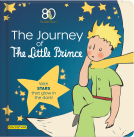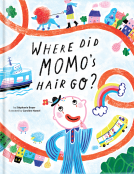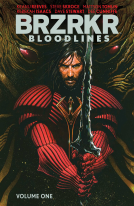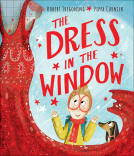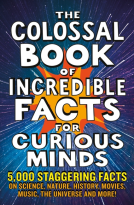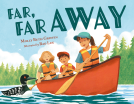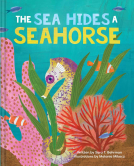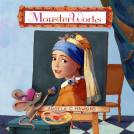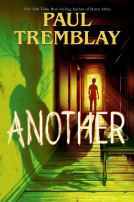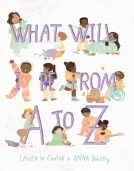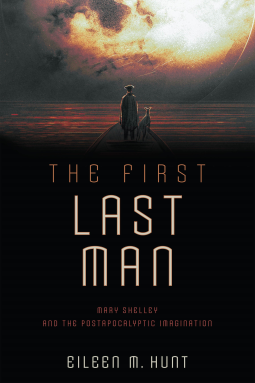
The First Last Man
Mary Shelley and the Postapocalyptic Imagination
by Eileen M. Hunt
This title was previously available on NetGalley and is now archived.
Send NetGalley books directly to your Kindle or Kindle app
1
To read on a Kindle or Kindle app, please add kindle@netgalley.com as an approved email address to receive files in your Amazon account. Click here for step-by-step instructions.
2
Also find your Kindle email address within your Amazon account, and enter it here.
Pub Date Apr 16 2024 | Archive Date Mar 20 2024
Talking about this book? Use #TheFirstLastMan #NetGalley. More hashtag tips!
Description
Beyond her most famous creation—the nightmarish vision of Frankenstein’s Creature—Mary Shelley’s most enduring influence on politics, literature, and art perhaps stems from the legacy of her lesser-known novel about the near-extinction of the human species through war, disease, and corruption. This novel, The Last Man (1826), gives us the iconic image of a heroic survivor who narrates the history of an apocalyptic disaster in order to save humanity—if not as a species, then at least as the practice of compassion or humaneness. In visual and musical arts from 1826 to the present, this postapocalyptic figure has transmogrified from the “last man” into the globally familiar filmic images of the “invisible man” and the “final girl.”
Reading Shelley’s work against the background of epidemic literature and political thought from ancient Greece to Covid-19, Eileen M. Hunt reveals how Shelley’s postapocalyptic imagination has shaped science fiction and dystopian writing from H. G. Wells, M. P. Shiel, and George Orwell to Octavia Butler, Margaret Atwood, and Emily St. John Mandel. Through archival research into Shelley’s personal journals and other writings, Hunt unearths Shelley’s ruminations on her own personal experiences of loss, including the death of young children in her family to disease and the drowning of her husband, Percy Bysshe Shelley. Shelley’s grief drove her to intensive study of Greek tragedy, through which she developed the thinking about plague, conflict, and collective responsibility that later emerges in her fiction. From her readings of classic works of plague literature to her own translation of Sophocles’s Oedipus Rex, and from her authorship of the first major modern pandemic novel to her continued influence on contemporary popular culture, Shelley gave rise to a tradition of postapocalyptic thought that asks a question that the Covid-19 pandemic has made newly urgent for many: What do humans do after disaster?
Eileen M. Hunt is Professor of Political Science at the University of Notre Dame. She is the author of Artificial Life After Frankenstein and Mary Shelley and the Rights of the Child: Political Philosophy in "Frankenstein," both available from the University of Pennsylvania Press.
Available Editions
| EDITION | Hardcover |
| ISBN | 9780812254020 |
| PRICE | $34.95 (USD) |
| PAGES | 224 |
Available on NetGalley
Featured Reviews
As a fan of Frankenstein I was very intrigued to read this book and to explore the postapocalyptic links in Shelley's work and beyond.
 Reviewer 1084098
Reviewer 1084098
Beyond her most famous creation―the nightmarish vision of Frankenstein’s Creature―Mary Shelley’s most enduring influence on politics, literature, and art perhaps stems from the legacy of her lesser-known novel about the near-extinction of the human species through war, disease, and corruption.
I love Mary Shelley and found this book to be very interesting and informative!
The First Last Man: Mary Shelley and the Postapocalyptic Imagination by Eileen M. Hunt is a book that explores Mary Shelley’s lesser-known novel, The Last Man. The novel tells the story of the near-extinction of the human species through war, disease, and corruption. The author, Eileen M. Hunt, examines how Shelley’s post-apocalyptic imagination has shaped science fiction and dystopian writing from H. G. Wells, M. P. Shiel, and George Orwell to Octavia Butler, Margaret Atwood, and Emily St. John Mandel
The First Last Man: Mary Shelley and the Postapocalyptic Imagination rounds out a trilogy of Shelley-related scholarship by political scientist Eileen M. Hunt. (The previous two works, also highly recommended, include Mary Shelley and the Rights of the Child: Political Philosophy in Frankenstein and Artificial Life After Frankenstein.) In this volume, Hunt focuses not only on Shelley's The Last Man, but also on Shelley's personal journals and her story "The Invisible Girl," noting how these writings together serve as plague narratives.
Hunt restores Shelley to the tradition of plague and pandemic writing, but she also underscores Shelley's pathbreaking role as an author of political science fiction, a writer who identifies plagues as "human-made monstrosities," "human contaminations of their wider social environments," tragedies rooted in "corruption, panic, and politics." Hunt ably unpacks what she calls "Shelley's existential philosophy of love," explores the impact of Shelley's translation of Oedipus Rex on her writing, and draws connections between the postapocalyptic pandemic novel and the intellectual history of international relations. I found it particularly interesting to see how Hunt traces Shelley's legacy in the works of more recent women authors of postapocalyptic political thought such as Muriel Spark, Lorraine Hansberry, Joanna Russ, Margaret Atwood, Octavia Butler, Emily St. John, and Sandra Newman.
To call this book timely would be an understatement. While I wished for more direct textual analysis of The Last Man, in particular -- more highlighting and analysis of Shelley's own words, less simply retelling what she said -- I also deeply appreciate the depth and breadth of the theory and history brought to bear in this analysis. This is a readable, wide-ranging, and welcome contribution from an astute scholar, and I both recommend it and hope that it serves to bring more attention and appreciation to understudied and richly deserving writings by Mary Shelley.
Thank you NetGalley and the University of Pennsylvania Press for sending this book for review consideration. All opinions are my own.
 Lisa D, Reviewer
Lisa D, Reviewer
I didn't realize that there were two other scholarly books in this vein by this author. This book is definitely scholarly, but the ideas are important and timely.
In Shelley's book The last man, there is a pandemic that kills almost everyone. In her real life, Shelley had just lost her husband and all but one of her children (I had to look it up, the surviving child lived to adulthood, married, and adopted a child of his own).
Shelley looks at the situation through the lens of a real science fiction author, focusing more on the impact than the disease itself. Her characters have to deal with a changing world, learning to manage their own goals and expectations.
I do think that Shelley was an amazing person who penned this story to deal with and overcome her own grief.
There is no happy ending, but there is hope, and that is what you can hold on to.
This is relatively short but very serious, and I would recommend it to anyone who loves early sci fi, women's sci fi, and/or the works of her mother, who was brilliant in her own right.
Thanks to NetGalley for letting me read this
I was really excited to see a book that focused on Mary Shelley's impact on sci fi/ political sci fi literature but this book was so much more. This book (unfortunately) expanded on my reading list for this year. I can clearly see that the author put a lot of work and care into describing Shelley and her background, and the quality of research definitely comes through. I'm definitely excited to get my hands on a hardcopy when this comes out :)
 catherine h, Reviewer
catherine h, Reviewer
Not exactly what I was expecting. The book was well researched and had l;oads of info about Mary Shelly and her life, but I lost interest in reading about it about half way through. I'm just not a big enough fan of hers, or Frankenstein, to finishlove reading the book. Just not me. I am sure there will be fans of one or both who will be enthralled and thoroughly enjoy the book. And deeply appreciate the insights. I'm just not that person. I will give the book a 4 star however, as I believe it was well written and that the Ms. Hunt is a passionate fan of Mary Shelly. It would make a fine gift for the right person, as well.
Readers who liked this book also liked:
Nigel Henbest; Simon Brew; Sarah Tomley; Ken Okona-Mensah; Tom Parfitt; Trevor Davies; Chas Newkey-Burden
Entertainment & Pop Culture, Humor & Satire, Nonfiction (Adult)
Sara T. Behrman
Children's Fiction, Outdoors & Nature, Parenting & Families
